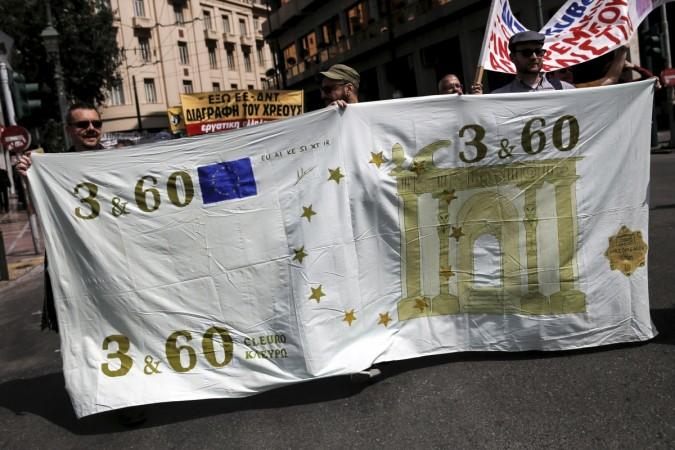
Greece could lift most or all capital controls imposed at the height of the euro zone crisis by the end of the year, the head of the country's banking association said on Saturday.
The controls, which restricted the amount of cash that can be withdrawn from banks to €420 a week, were imposed last June to halt a flight of deposits that threatened to wreck the banking system as Greece was embroiled in acrimonious bailout talks with its international lenders.
More than €50 billion left banks from November 2014 to July last year on fears that the country could crash out of the euro, forcing them to resort to emergency borrowing from the European Central Bank and the Bank of Greece.
"Personally, I believe that the biggest part of the restrictions, if not all of them, can be lifted this autumn and toward the end of the year," Louka Katseli, who also chairs National Bank, Greece's second biggest lender, told Greek state TV.
Katseli said one of the conditions for this to happen had already been met after Greece successfully concluded a first review of its bailout reforms this month, helping to restore investor confidence in the country.
The next immediate step would be for the ECB to give Greek banks access to cheap funding by accepting Greek bonds as collateral, she said.
While Greece is rated "junk" by credit agencies, the ECB is almost certain to waive its investment-grade credit rating requirement at its June 22 Governing Council meeting, allowing Greek banks to start coming off an emergency liquidity lifeline and tap into the ECB's regular and cheaper funding.
Katseli said two remaining conditions for fully removing capital controls — an effective management of non-performing loans and a return of deposits to Greek banks — were not easy to achieve.
"A return in deposits is the most difficult part, meaning it will take time, because people are still wary," Katseli said.

















